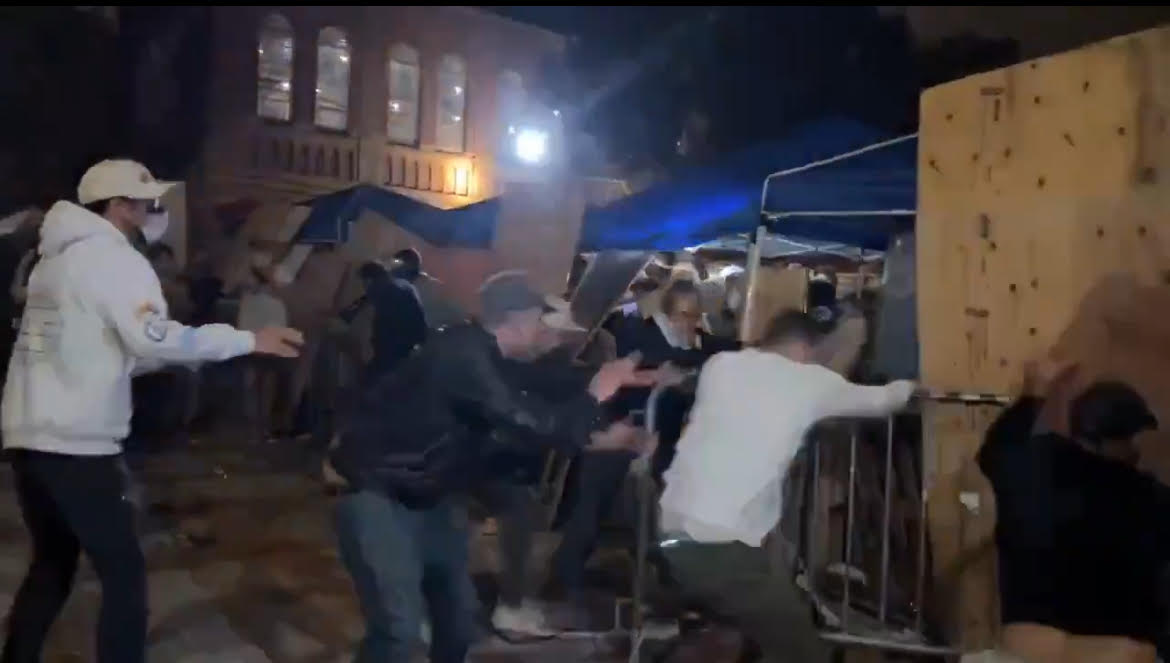
By David M. Greenwald
Executive Editor
On Friday, an Orange County judge granted a temporary restraining order to the University of California, temporarily halting the systemwide strike that UC says is illegal by UAW-represented employees across campuses.
The action marks the latest effort by UC to end what it has claimed to be an illegal strike.
UCOP (UC Office of the President) released a statement noting that UC and UAW have collective bargaining agreements that each have no-strike clauses. UAW-represented UC employees began striking on May 20 at UC Santa Cruz and the strike has expanded to six of the 10 systemwide campuses.
“We are extremely grateful for a pause in this strike so our students can complete their academic studies. The strike would have caused irreversible setbacks to students’ academic achievements and may have stalled critical research projects in the final quarter,” said Melissa Matella, associate vice president for Systemwide Labor Relations.
“From the beginning, we have stated this strike was illegal and a violation of our contracts’ mutually agreed upon no-strike clauses,” Matella added. “We respect the  advocacy and progressive action towards issues that matter to our community and our community’s right to engage in lawful free speech activities — activities that continue to occur across the system. However, UAW’s strike is unrelated to employment terms, violates the parties’ agreements, and runs contrary to established labor principles.”
advocacy and progressive action towards issues that matter to our community and our community’s right to engage in lawful free speech activities — activities that continue to occur across the system. However, UAW’s strike is unrelated to employment terms, violates the parties’ agreements, and runs contrary to established labor principles.”
Representatives for UAW had a different reaction, noting that the university had “failed to secure an injunction against the lawful strike from the Public Employment Relations Board (PERB)” and then succeeded in a more favorable venue, the Orange County Superior Court.
UAW notes, “This comes after PERB issued a thorough complaint against UC alleging serious unfair labor practices.”
In May, for example, UCLA Law Professor Noah Zatz said in an op-ed in the Daily Bruin, “The UC’s argument may be superficially convincing to those not versed in labor law, though those drafting and approving UC’s anti-union missives surely lack that excuse. But the UC’s analysis is bluster.”
Zatz notes that “a longstanding and deeply entrenched body of labor law says otherwise. The key idea is that no-strike clauses generally serve a specific function: they channel disputes about violations of labor agreements into a binding grievance and arbitration process rather than into disruptive strikes. If the UAW had voted to strike over an alleged UC contract breach or for a better contract, that would have gone against the no-strike clause. But they did not. They voted to strike over something else.”
UAW also noted that PERB filed a motion with the court arguing that it was the appropriate authority on questions of public sector labor law.
The judge declined to consider that motion at this time.
“It is nearly unheard-of for public employers to try and sidestep PERB’s jurisdiction when faced with an unfavorable decision. The university’s actions notwithstanding, PERB will retain jurisdiction and set the unfair labor practices for trial,” UAW said.
“UC academic workers are facing down an attack on our whole movement,” said Rafael Jaime, president of UAW 4811, which represents 48,000 academic workers across the UC system. “PERB, the regulatory body with the expertise to rule on labor law, has twice found no grounds to halt our strike. I want to make clear that this struggle is far from over. In the courtroom, the law is on our side and we’re prepared to keep defending our rights — and outside, 48,000 workers are ready for a long fight.”
Veena Dubal, a Professor of Law at the University of California Irvine, wrote in a post on X: “It is pretty darn brazen of UC to go to Superior Ct after PERB TWICE denied them. UC’s actions are not unlike what Starbucks and Amazon are doing in the private sector: attempting to undermine the bodies governing labor law.”
The strike comes in response to UC’s serious unfair labor practices, which began on May 1 when the university allegedly allowed an angry mob to beat peaceful protesters at UCLA, calling in riot police the next night to arrest those protesters who remained. UC has since then made unilateral and dramatic changes to long-standing policies on protest and use of force, then, according to UAW, “used these changed policies to arrest and discipline hundreds of students and academic workers across the state.”
Meanwhile, UCOP said, “While this is an important victory critical to support student success, the University will continue to pursue its legal claims in state court and PERB to protect labor peace across the system. “


What shocks me most is that UC workers are represented by UAW (United Autoworkers Local 4811)
Keith Olsen- not quite. Post-docs, academic researchers, and graduate student researchers are UAW.
Most “UC workers” (staff, techs, etc) are UPTE and they strike with AFSCME:
https://ucnet.universityofcalifornia.edu/resources/employment-policies-contracts/bargaining-units/